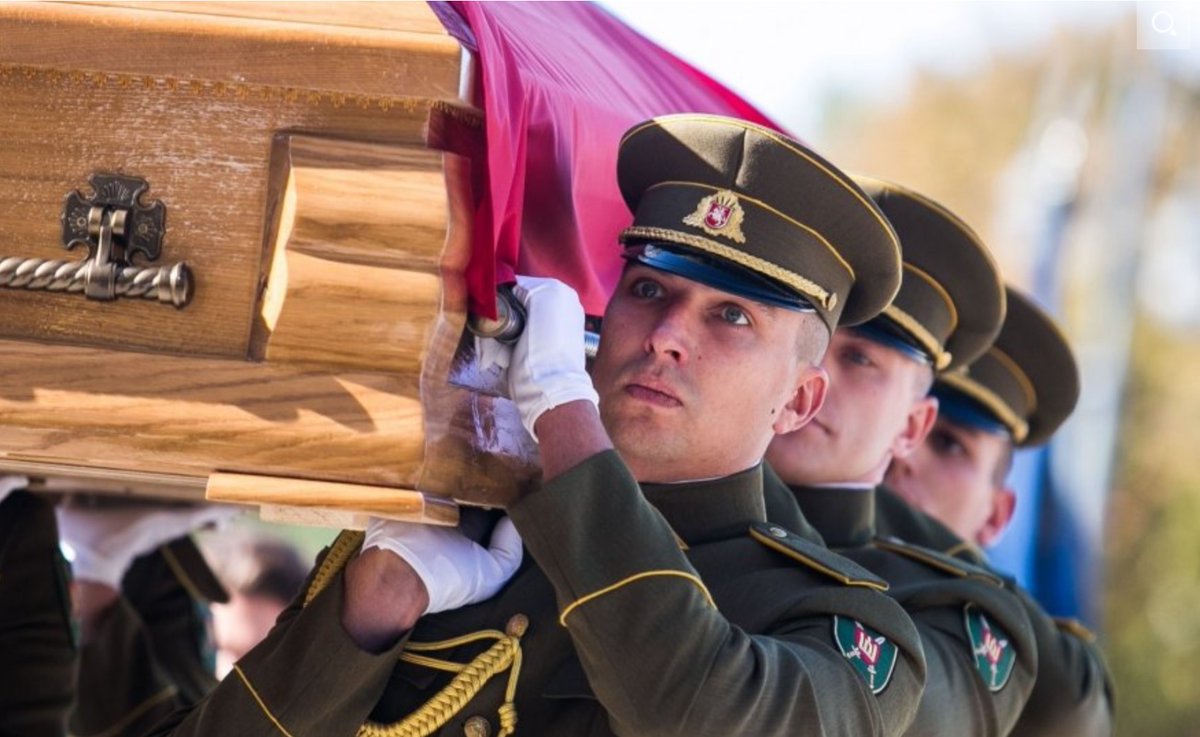Lithuanians pays last tribute to anti-Soviet guerrilla hero Adolfas Ramanauskas
Thousands of Lithuanians paid their last tributes to anti-Soviet guerrilla war hero Adolfas Ramanauskas at a state funeral Saturday, months after his remains were identified solving a 60-year-old riddle.

- Country:
- Lithuania
Thousands of Lithuanians paid their last tributes to anti-Soviet guerrilla war hero Adolfas Ramanauskas at a state funeral Saturday, months after his remains were identified solving a 60-year-old riddle.
Crowds gathered along sunny Vilnius streets to bid farewell to the fighter nicknamed Vanagas ('The Hawk'), the most senior commander of the 1944-1953 Lithuanian partisan resistance movement against the Soviet occupation.
"One person was so dangerous to the system that they tried not only to destroy him and his family but also to hide his identity. They failed," President Dalia Grybauskaite said as the flag-draped coffin was lowered into the grave.
Prime Minister Saulius Skvernelis said the state funeral was a day of "historic justice".
Prompted by Soviet terror, killings, mass deportations to Siberia and forced conscription into the Red Army, the partisan movement started in 1944.
A teacher before the war, Vanagas joined the "Forest Brothers" the following year.
Enjoying broad support in the countryside, the movement numbered around 20,000 people in its initial stages, but the number fell dramatically and by 1952 only several hundred active partisans remained.
After several years in hiding, Vanagas was captured by Soviet authorities in 1956, brutally tortured. He was executed the following year and thrown into an unidentified mass grave.
It was only last year that Lithuanian archaeologists received a tip about the whereabouts of fighters executed for "political crimes".
In June, a DNA test confirmed that remains found at a Vilnius cemetery earlier this year were those of Vanagas.
"Now I will finally have his grave where I can go whenever I want to be with him. I think it will be a symbol of all freedom fighters," Vanagas' daughter Auksute Ramanauskaite Skokauskiene told Lithuania's public TV.
The Soviets invaded the Baltic states in 1940 under their Molotov-Ribbentrop pact with Nazi Germany.
Lithuania declared independence in March 1990 as the first republic to secede from the Soviet Union. It joined the EU and NATO in 2004.
But the strained relations between Vilnius and Moscow remain stoked by conflicts over the past, notably Moscow's refusal to recognise its five-decade rule as occupation or the deportations as a crime.
(With inputs from agencies.)










